Five Questions With… Evalyn Parry
The award-winning theatre creator and songwriter, director, writer, and performer is currently staging her multi-media project Spin at select venues in southern Ontario and preparing a new show Kiinalik: These Sharp Tools. Here she discusses both projects and her love of kitchen parties and 19th-century heroines.
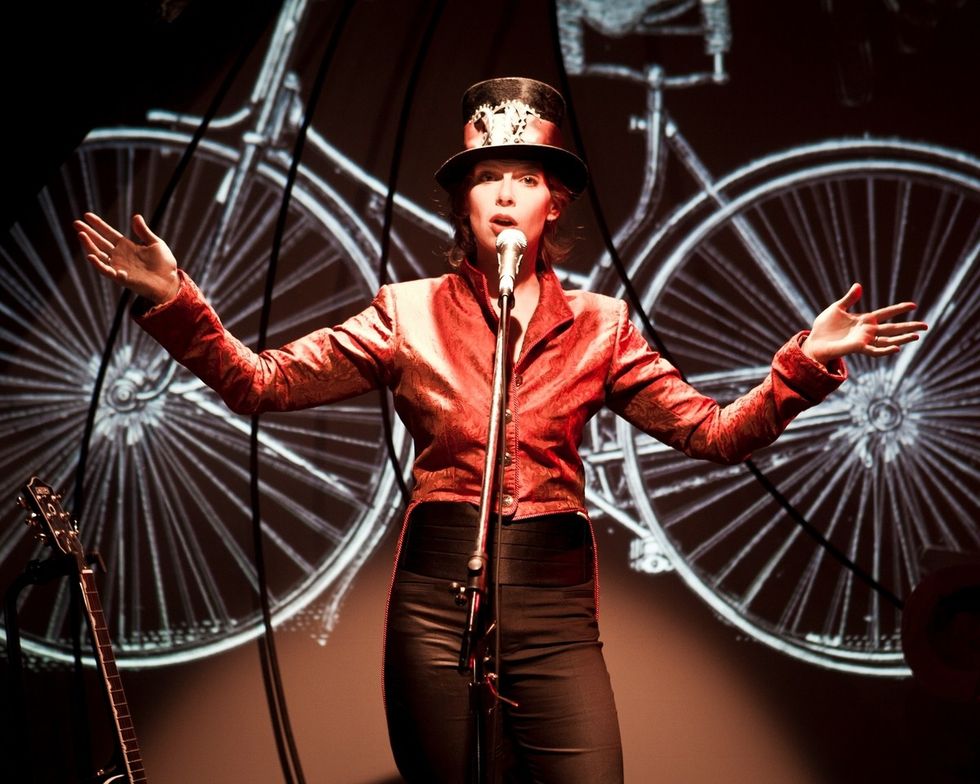
By Jason Schneider
Evalyn Parry is an award-winning theatre creator and songwriter, director, writer, and performer whose work is inspired by intersections of social activism, history and autobiography. She is perhaps best known as the Artistic Director of Buddies in Bad Times Theatre in Toronto, but is currently staging her acclaimed multi-media project Spin at select venues in southern Ontario.
Spin celebrates the bicycle as muse, musical instrument and agent of social change, by spinning a web of stories that travel from 19th century women’s emancipation to 21st century consumer culture. Inspired by the incredible true tale of Annie Londonderry, the first woman to ride around the world on a bicycle in 1895, Spin is one part documentary and another part musical activism.
Parry’s co-star is a vintage bicycle, suspended in a mechanic’s stand on stage and outfitted with electronic pickups, which is played by percussionist Brad Hart. Hart conjures an astonishing array of sounds from the bike, creating a richly textured and utterly unique sonic accompaniment to Parry’s songs and monologues.A 2011 recording of the show was nominated for a Canadian Folk Music Award in the Pushing The Boundaries category.
Parry is also mounting a new show this summer called Kiinalik: These Sharp Tools, and she took some time to talk about both projects with us. Spin’s next performances include Friday, April 26 at the Grand Theatre in Fergus, Sunday, April 28 at the Regent Theatre in Picton, May 2-5 at Old Town Hall in Waterford, and May 8 at the Jane Mallett Theatre in Toronto. For more info go to evalynparry.com
You're currently performing Spin again. How has the project evolved since you first staged it?
The show has evolved quite a bit since it first premiered, but the basic form and idea remain the same: a song-cycle about the early feminist history of the bicycle, accompanied by a bike played as a percussion instrument. Several new songs have been added and others taken out, as I’ve responded to some things that have happened along the journey of touring the show.
Along the journey, we’ve also had a number of other instrumentalists join us, adding to and influencing the musical arrangements, but at its heart, the piece remains a duet between storyteller and bicycle.
What do you hope audiences will take away from the show?
I always hope that audiences will go away inspired. One of my favourite reactions is when people tell me the show has inspired them to get back on their bike.
I believe the themes of the show are deeply political, although the show is not “about” the politics of cycling in a topical or current events way. It’s a series of little-known stories from history that have amazing resonance today—a reclaiming and celebration of some incredible, and not well known, cycling heroines, and of the history of a machine that was once—and for me and many others still is—the ultimate symbol of freedom.
So I’m always excited for audiences to be introduced to these heroines and adventurers from the 19th century. The show pays homage to some historical figures who should be more widely known and celebrated—women who broke rules and pioneered in ways that blazed trails for future generations of female and non-conforming folks.
Also, I love that people often tell me that after seeing Brad Hart play the bike as a musical instrument, they will never look at their bike in the same way. It’s pretty incredible, the beautiful and evocative sounds that he produces from this unlikely source.
You also have another big project this summer, Kiinalik: These Sharp Tools, which will be performed at Luminato in Toronto. What’s that about?
Kiinalik is a collaboration between myself and Iqaluit-based Inuk artist Laakkuluk Williamson Bathory, along with cellist CrisDerksen, video artist Elysha Poirier and director Erin Brubacher.
We call the show “a concert and a conversation” between North and South. It’s a production that gives voice and body to the histories, culture, and climate we’ve inherited, as two female artists: An indigenous woman living in the north, and a queer white woman living in the south. Kiinalik investigates how we reckon with the colonial histories, power structures and the changing climate that lie between us.
Kiinalik and SPIN are kind of spiritual cousins, in the sense that both shows use song, music and visuals as integrated storytelling elements, and both shows are non-linear in their exploration of time, history and theme. Also, both works were born out of a concern about climate change.
Is there anything else you have in the works that you'd like to talk about?
After Luminato in June, Kiinalik will be presented by the Edinburgh International Festival in August, and we have a lot of tour plans in the works. So there’s lots of travel ahead.
What are your fondest musical memories as you were growing up?
I grew up around a lot of folk music. Both my parents were traditional folk singers and enthusiasts, and pretty much every party we would go to would wind up with everyone singing sea shanties in the kitchen at the end of the night. The power of singing in a group with other people—whether in a choir or at a protest or in a kitchen—are some of my most important musical memories.

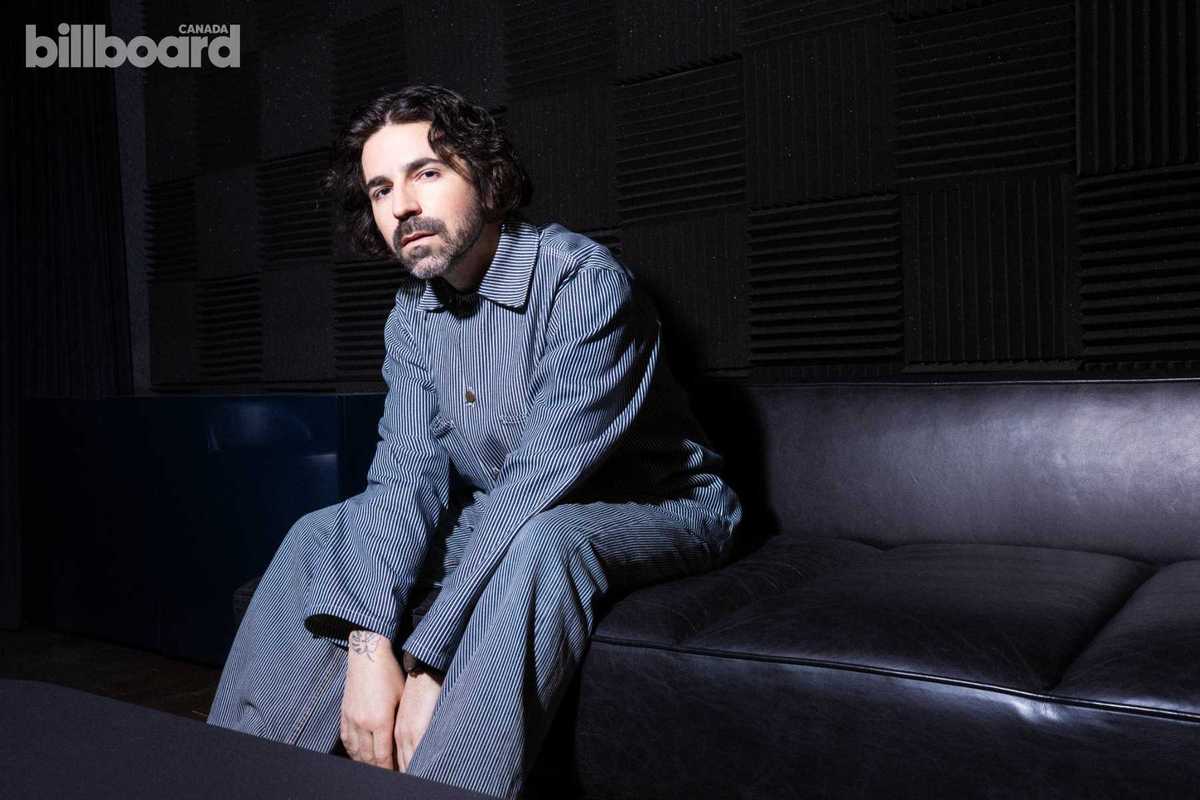







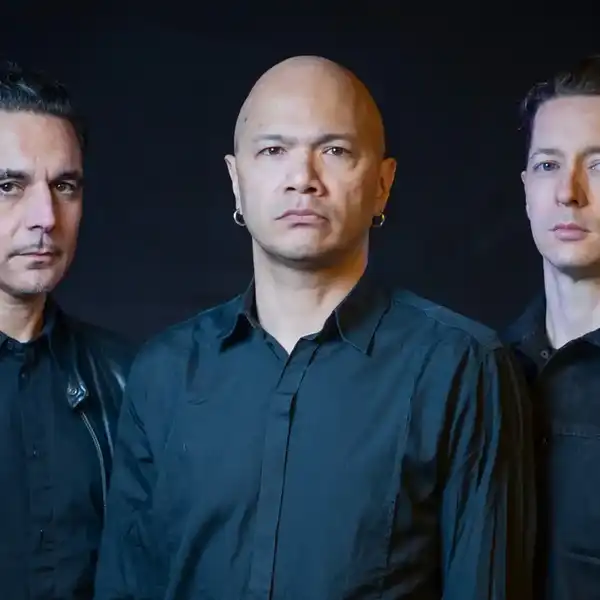








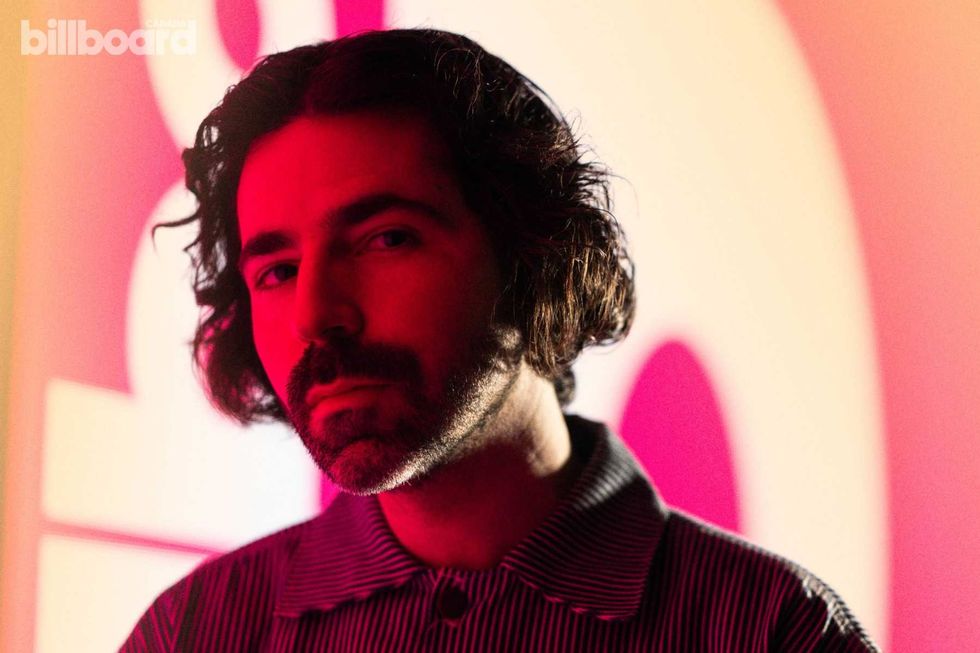 Felix Cartal shot at the W Toronto on Feb. 20, 2026. Lane Dorsey
Felix Cartal shot at the W Toronto on Feb. 20, 2026. Lane Dorsey 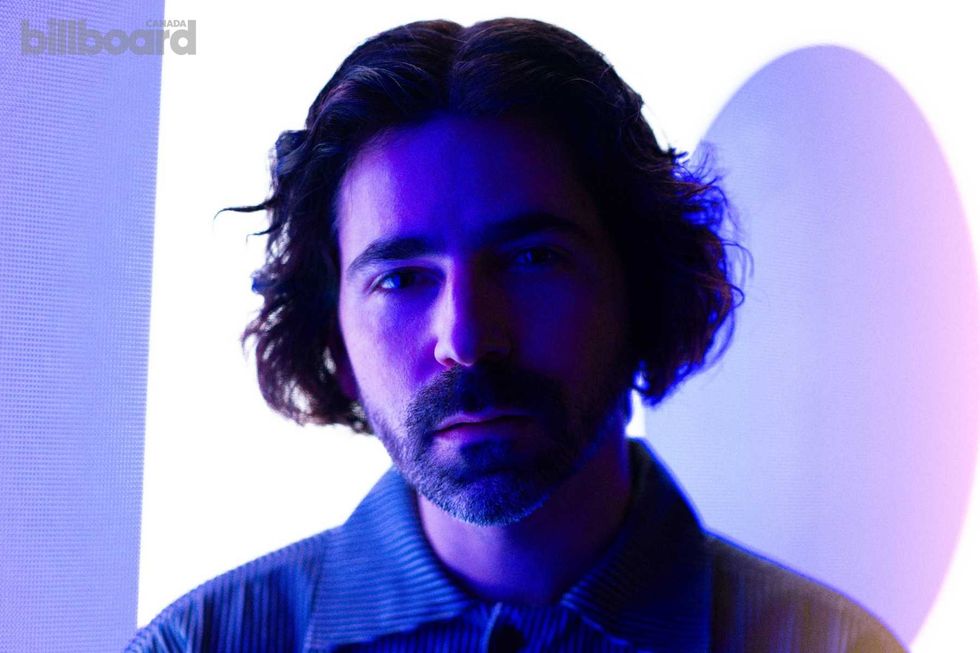 Felix Cartal shot at the W Toronto on Feb. 20, 2026.Lane Dorsey
Felix Cartal shot at the W Toronto on Feb. 20, 2026.Lane Dorsey